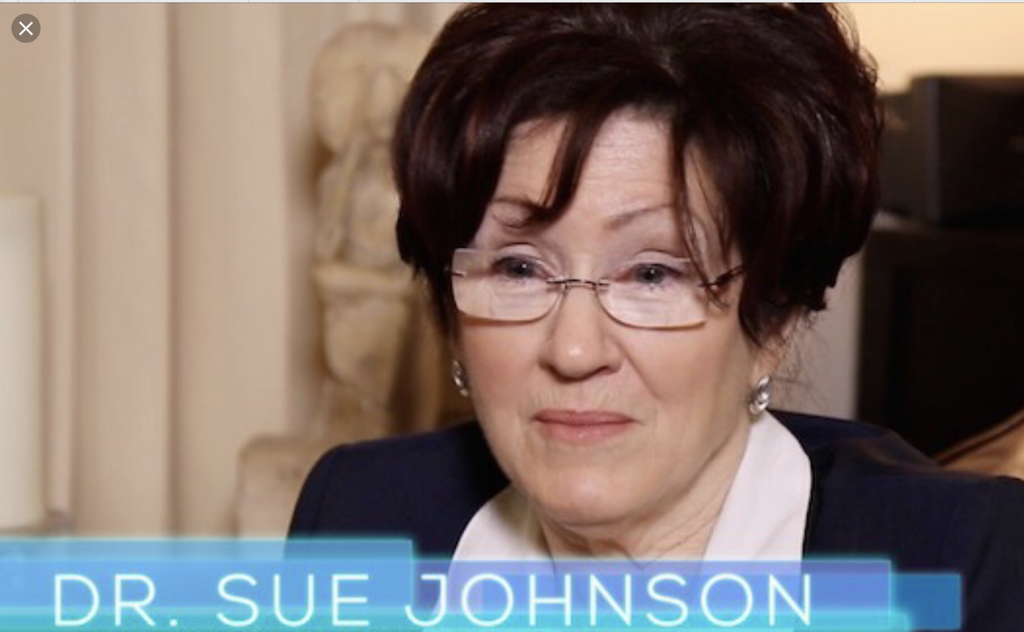|
Sue talks candidly about her life, her mission and Emotionally Focused Therapy.
0 Comments
Deb and Nao discuss the importance of emotional connection in relationships, some of the roadblocks, and how Emotionally Focused Therapy can help couples navigate emotions successfully. Check out their Podcast.
I highly recommend this movie as a great way to understand the inner working of our hearts and minds. They take a complex subject and animate it a way all can understand. There is so much in this movie I plan on seeing it again, which is something I don't often do.
Love and Attachment From Cradle to Beyond the Grave It is amazing to me how a sense of secure attachment can extend beyond the grave. I was lucky enough to have a mother who loved me when she was alive so much so that I feel it even in her absence. My goal for clients, and hope as a therapist, is to promote this type of feeling and attachment.
My reflection, "Listening to our handyman speak Portuguese to one of his workers or maybe Spanish with a Portuguese accent, sounds like music to my ears. It must be reminding me of the sounds and rhythmes of my mother's voice and of her lullabies when I was a baby. Portuguese was her first language and she had only been here a few years before I was born. It is strange the sense of peace I feel listening from a distance. I think, 'Don't stop talking.' I feel so soothed and calmed." I think I must have had some kind of a pre-verbal memory as I was not close enough to hear the distinction of the words but only the muffled sing song melody of the voice. I guess like an infant might hear. I was then flooded with a very calm and peaceful feeling and a deep sense of knowing that I was loved not only by her but by God. It was very profound and spiritual, an experience I wish all could have. My mother's birthday is the 23rd. She always seems to send me a message from beyond that she still cares for me and loves me, usually around or on her birthday. I feel blessed and so wanted to share. "Landmark study shows that Emotionally Focused Therapy (EFT) can help couples understand their relationship better, reduce conflicts and create secure, loving bonds that can soothe brains."  © Jaime Nisenbaum, Ph.D. Posted with permission from the author. There is a growing body of research showing how the process of socialization of boys in our society leads to severe relational deficits later in life. One place where this lack of relational skills shows up very prominently is in intimate relationships and marriages. In my professional life as a clinical psychologist, as well as in my personal life as a husband and a father, I notice how the internalized messages about what it is to be a man in our society gets in the way of men becoming more empathic, caring, loving, and engaged in family life with our wives and children. The same body of research that has identified these issues is also helping men and their families understand and eventually change these deep-seated patterns. Research shows that, at birth, baby boys are more emotionally expressive than baby girls but by the age of 4 years old the effects of the socialization of boys in curbing that emotional expression are already clearly visible. At that early age, research shows that boys have already received conscious and unconscious messages from parents, teachers, peers and the culture at large that being in touch with vulnerable emotions such as sadness, fear, and healthy needs for closeness and affection are not acceptable for boys. By second grade, many teachers say that they can no longer “read” the facial expression in boys who have been “trained” to hide their emotions. When boys begin to shut off those vulnerable emotions in order to fit into the “code of masculinity” -- being tough, competitive, aggressive, and avoiding anything that is labeled “girly” or feminine -- they start a relentless process of cutting off and disconnecting from these essential parts of themselves. By the time men get married, they have been through many years of practice in severing their connection from these vulnerable and vital parts of themselves. The negative consequences of that process on men’s mental health are devastating and range from chronic anger, anxiety, substance abuse, and violence towards themselves and others to apathy and depression. Man men also suffer from an apparent “lack of empathy” that trouble many marriages and relationships that come to my office for help. I usually explain to the men and the women in my practice that given what men are required to do to be “men,” how could it be otherwise? Empathy requires that we have access to our feelings so that we can resonate with the feelings of others. If men are taught to cut off from certain feelings, how can we expect them to be able to resonate with the feelings of others? While this explanation is no excuse for any kind of abuse, it gives a starting place for men to start re-thinking whether they want or not to continue to live up to the mandates of the “code of masculinity.” Unless men resolve to address their internal state of disconnection, they will repeat in their relationship with others what they learn to do with themselves: to dismiss, ignore, and avoid the “troubling” vulnerable feelings and live their lives as divided and un-integrated selves. The “code of masculinity” is maintained by both the men and women in our culture and both men and women suffer from this state of affairs. But I believe that it is incumbent on men to realize what they have been “programmed” to do and finally decide to do something about it for their own sake, and for the sake of their relationships. About the author: Jaime Nisenbaum, Ph.D. is a clinical psychologist and professor who specializes in men's issues. He has a practice in Berkeley and San Rafael, CA. For more information about him, visit his web site. www.jaimenisenbaum.com |
Evelyn Schmechtig CochranCategories
All
Archives
February 2024
|



















